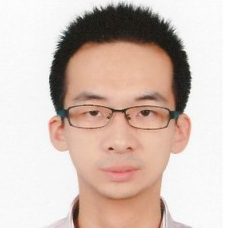Advances in Modelling and Control of Power Converters
A special issue of Energies (ISSN 1996-1073). This special issue belongs to the section "A1: Smart Grids and Microgrids".
Deadline for manuscript submissions: closed (31 January 2024) | Viewed by 1139
Special Issue Editors
Interests: power converter; power electronic-based power system; wind power system and energy storage system for smart grid
Special Issues, Collections and Topics in MDPI journals
Interests: power electronics; power drive; PMSM drive
Special Issue Information
Dear Colleagues,
Power electronic converters are critical components in modern industry. It becomes more and more important not only in the traditional fields but also in more new emerging areas, including renewable energy generation, electric vehicles, electric aircrafts, robotics, etc. The rapid development of power electronic technologies toward high power density and high frequency also poses new challenges. Nowadays, it is important and urgent to deal with the relevant challenges in power electronic conversion technology.
This Special Issue aims to present and disseminate the recent advances related to modelling, control, and application of power converter.
Topics of interest for publication include, but are not limited to:
- Advanced modelling and analysis method of power converters, such as nonlinear method, artificial intelligent-based method, etc.
- Advanced topology of power converters.
- Advanced control strategy of power converters.
- Wide bandgap device and its application in power conversion system.
- Advanced application of power converters in new emerging fields such as more electric aircraft, electric vehicles, and wind power converter, etc.
- Thermal analysis and management technology of power converter.
- Modelling, analysis, and control of multiple paralleled converters.
- Advanced power conversion technology for renewable microgrid.
- The application of AI technology in power converter.
- Real-time digital modelling and simulation technology of power converter.
Dr. Yanbo Wang
Dr. Dong Wang
Dr. Weihua Zhou
Guest Editors
Manuscript Submission Information
Manuscripts should be submitted online at www.mdpi.com by registering and logging in to this website. Once you are registered, click here to go to the submission form. Manuscripts can be submitted until the deadline. All submissions that pass pre-check are peer-reviewed. Accepted papers will be published continuously in the journal (as soon as accepted) and will be listed together on the special issue website. Research articles, review articles as well as short communications are invited. For planned papers, a title and short abstract (about 100 words) can be sent to the Editorial Office for announcement on this website.
Submitted manuscripts should not have been published previously, nor be under consideration for publication elsewhere (except conference proceedings papers). All manuscripts are thoroughly refereed through a single-blind peer-review process. A guide for authors and other relevant information for submission of manuscripts is available on the Instructions for Authors page. Energies is an international peer-reviewed open access semimonthly journal published by MDPI.
Please visit the Instructions for Authors page before submitting a manuscript. The Article Processing Charge (APC) for publication in this open access journal is 2600 CHF (Swiss Francs). Submitted papers should be well formatted and use good English. Authors may use MDPI's English editing service prior to publication or during author revisions.
Keywords
- modelling
- control
- wide bandgap device
- power converter
- grid-connected converter
- microgrid
- new topology






